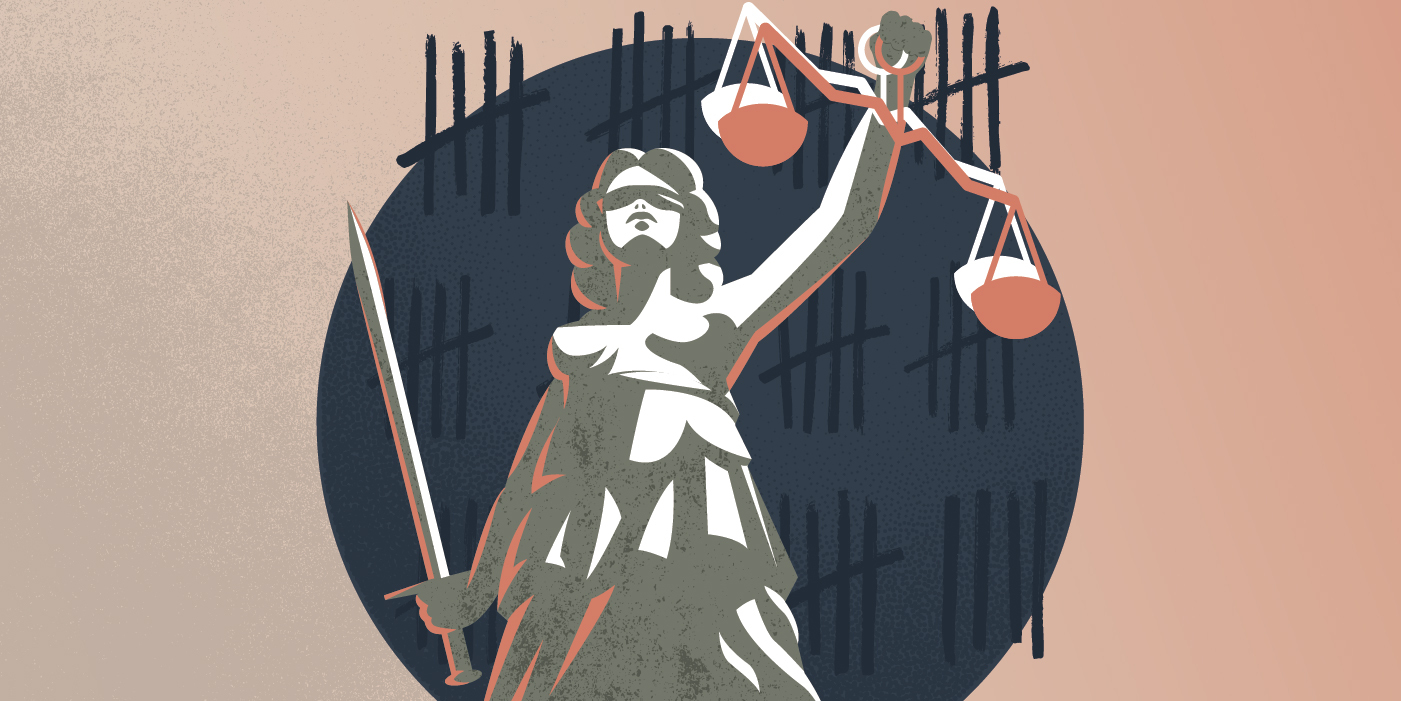

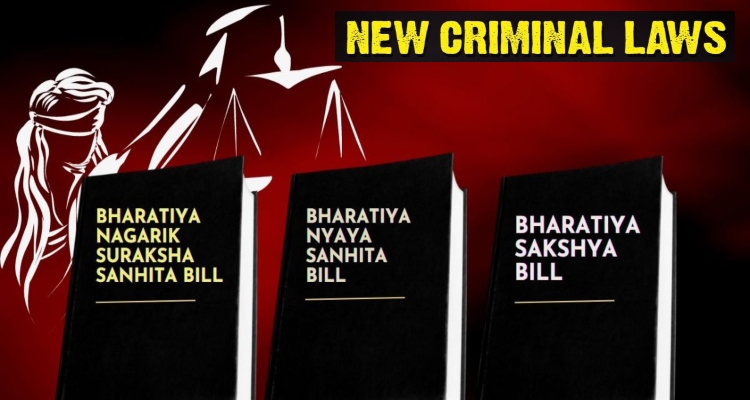
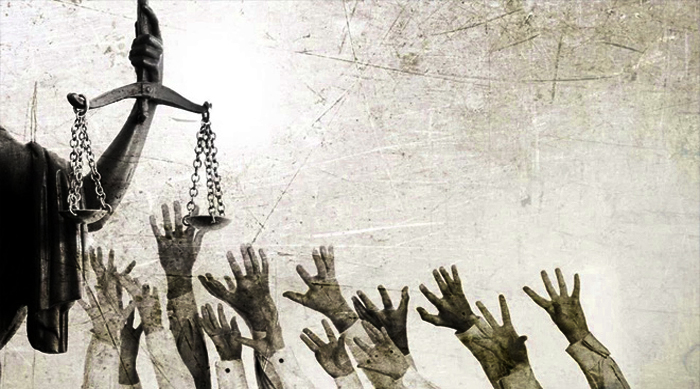
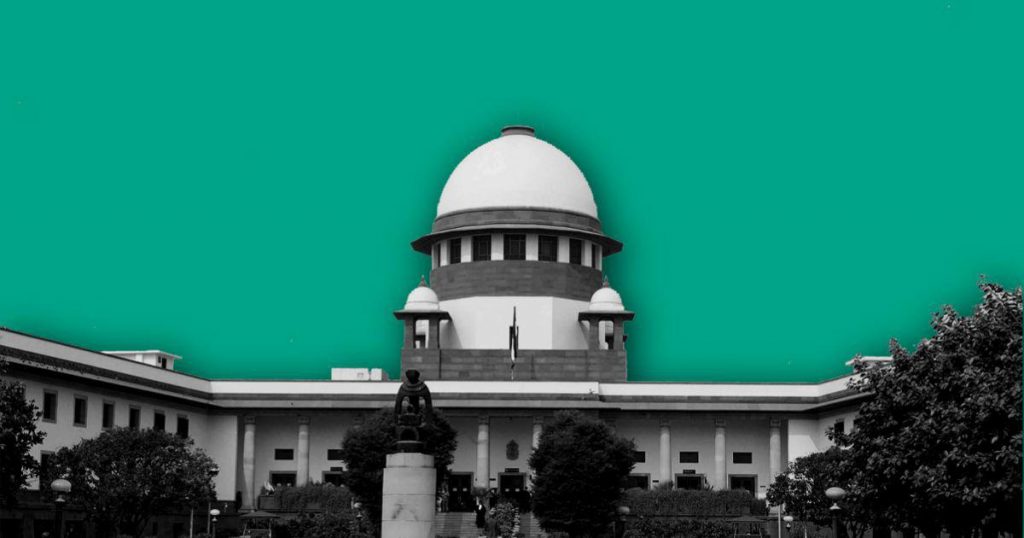
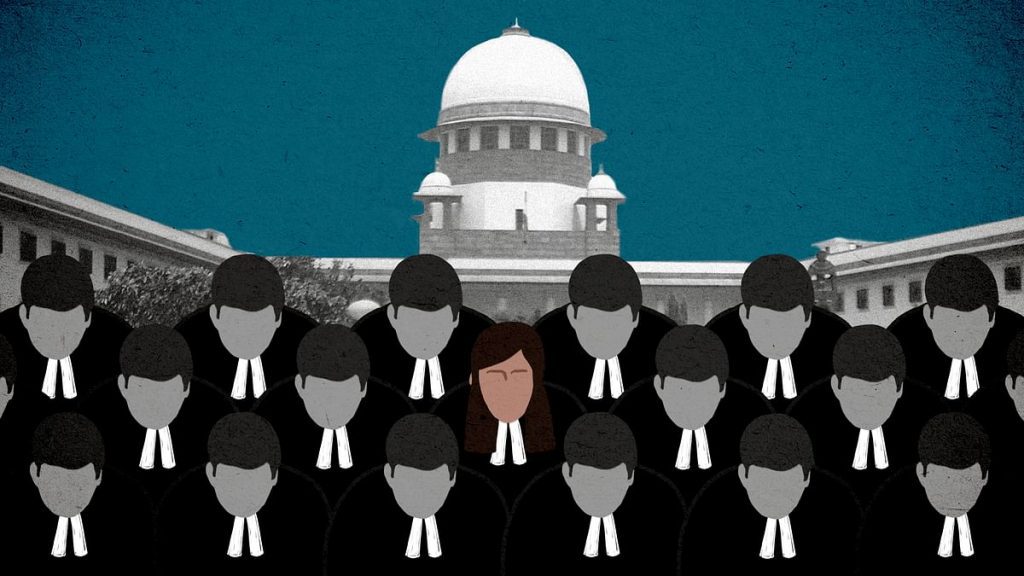
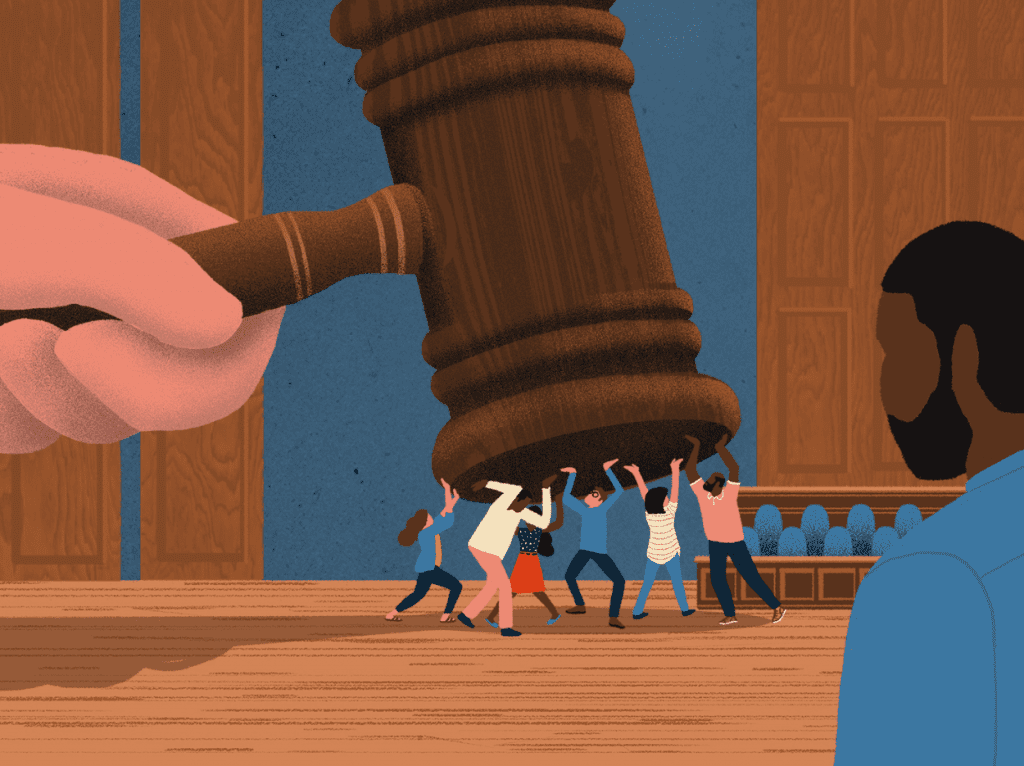

The emergence of three new criminal law has been the talk of the town for several months and finally now it has come into effect. Huge opposition erupted from the society so far from the date on which these bills have been passed in the legislature with very minimum strength which itself seemed arbitrary in passing such criminal laws. This would potentially bring in existence of two Criminal Justice Systems that will prevail at a time.
However, criminal jurisprudence is what the Indian criminal laws were based on, and in such a case, these new laws being with some effectively driven provisions also has some serious lacunae in upholding the criminal jurisprudence followed in India from the colonial era. Criminal Jurisprudence gives the principle on how the courts have to process in a criminal case and deliver justice being made through proper scrutiny and analysis of evidence. But, the new criminal laws have failed in achieving such principles and have overridden it.
This article brings attention to the principles of justice, reforming punishments, procedural establishment of a crime and involvement of technology as a myth brought by the three new criminal law in line with the existing criminal jurisprudence in India. This article observes the new criminal laws with the existing jurisprudence and would show the reader a slight shift of our criminal jurisprudence from the pre-colonial era to an even worse stage than it was. It also had listed out the significant problems with the current legislations and had addressed the importance of judiciary in such a stage and also had brought in some suggestions to rectify such defects.
Introduction


An Accused is presumed as an innocent; unless proven to the contrary by appropriate evidence by the prosecution.
This is the general presumption of the court in any criminal case and stands shifted in certain cases imposing the burden of proof to the accused himself as pertaining to some significant legislations such as Unlawful Activities (Prevention) Act, 1967 (UAPA). As we all could have come across the news that the new criminal law came to enforcement on 1st July, 2024. Also, the first case was registered for a motorcycle theft in Gwalior, Madhya Pradesh under the Bharatiya Nyaya Sanhita, 2023 (BNS) under Section 303(2) for theft.
Similarly, on the same day, a case was registered under Section 285 of BNS against a street vendor for allegedly obstructing public ways and doing sales in Central Delhi’s Kamala Market area which is said to be dismissed upon review after investigation. The new criminal laws have brought in some significant changes appreciably such as speedy trial process and a victim-centric procedural updates and an update in normalising the digital usage.
Apart from these matters of significance, these laws impose some shift in the theory of punitive laws concentrating on retribution that makes the executive authorities more powerful and effective which might lead to arbitrariness and unleash the excessive usage of their powers. Therefore it is important for the courts to deepen their view in preventing such happenings in furtherance.
This article aims to throw light on the aspects of changes that were brought in by the three new criminal law in a comprehensive manner and in a broader view also their fundamental impact in the existing criminal law jurisprudence in comparison to widely accepted global laws on criminal jurisprudence along with the relevant suggestions on certain gray areas and addressing the lacunae created by the new criminal manual.
Criminal Law Jurisprudence in India
To be very concise, basically, criminal jurisprudence comes into play when there is a wrong being committed by a person against a society or sovereignty. A wrong can be expressed in terms of commission of an act or omission of a duty. These wrongs are scrutinized for the purpose of adjudication and the final decision or the result would be justice. This system of justice can be called Jurisprudence. When the peacefulness or the public order of a society is getting disturbed by an individual’s act of wrong, there emerges criminal jurisprudence.
Criminal Laws are enacted for the said prevention of such acts which are called offences under penal laws in various modes such as retribution, reformation and deterrence. Also laws establishing the procedure for adjudicating such persons and analyzing evidence in the court to prove his guilt beyond reasonable doubt and shifting the burden to prove comes under the domain of criminal jurisprudence. In India, our soul of the criminal justice system is laid on the saying,
Let hundred guilty persons be acquitted, but not a single innocent be convicted.
This makes our justice system slow and steady, having a keen eye on the concept of justice delayed than justice denied. However, this itself makes an imposter on the judiciary being too burdened with cases and lacking in providing quicker relief. This has been addressed by our courts and many justices on various issues and cases.
For instance in Rattiram & Ors v. State of M.P. through Inspector of Police, The Supreme Court reiterated that procedural safeguards are essential and that quicker justice must not come at the expense of due process and fairness in criminal proceedings. Justice P.N. Bhagwati, in his various judgments and speeches, emphasized the right to a speedy trial as a fundamental right. However, he also acknowledged the systemic issues that need to be addressed to make this right a practical reality. The new enactments brought in an additional gear shift of having a swift and quick relief and trial to be done for speedy justice.
An Outline of Changes in three new Criminal Law


There have certainly been drastic and significant changes made in the provisions of Indian Penal Code, 1860, Criminal Procedure Code, 1973 and Indian Evidence Act, 1872 in large numbers. The Bharatiya Nyaya Sanhita has reduced the reputational number of 511 sections to just 358 sections with about 21 new offences being added in it which includes mob lynching, which was notably reiterated in a Supreme Court case of Tehseen S. Poonawalla v. Union Of India, new definition of organised crime, inclusion of terrorist act, explanation of economic offense, expanding the scope of theft of intangible data, alteration to sedition law as treason endangering national integrity, etc. It also includes certain new offenses like chain and mobile snatching as a separate provision under Section 304 of the BNS. Also BNS has introduced a new punishment of community service for petty offences.
Parallely in course with the new procedural law ie., The Bharatiya Nagarik Suraksha Sanhita, 2023 (BNSS) the detention period of police custody has been increased from 15 to 90 days and police may enquire the matter of serious offenses if made as a complaint, before registration of FIR within 14 days and after the completion of preliminary investigation to their satisfaction, may register an FIR in such cases, which primarily stands contradicting the judgment of the Supreme Court in the delay of filing an FIR in the case of Lalita Kumari v. Government of U.P. & Ors., updated e-filings and documents brought in procedures such as Electronic summons, facilitating electronic trials, complaints through electronic means such as video calls, in adoption to the digitised world.
This BNSS shifts the procedure in favour to the victims as they are given with the right to be informed and a relaxing jurisdiction crisis’ on Zero FIR filing and regular updation of investigation status to the victims by the police. While in the matter of Evidence admissibility, The Bharatiya Sakshiya Adhiniyam, 2023 (BSA) provides for the consideration of ‘electronic evidence as primary evidence’ and also includes recording of oral evidence by the rape victims as admissible whereas secondary evidence includes copies made from the original through mechanical process. In an overall undertaking of the new criminal law, it is observed as follows:
| Changes in Laws | IPC / BNS | CrPC / BNSS | IEA / BSA |
| Previous Sections | 511 | 484 | 167 |
| New Legislation | 358 | 531 | 170 |
| Sections Amended | 175 | 177 | 23 |
| Sections Added | 9 | 9 | 1 |
| Sections Removed | 22 | 14 | 5 |
Focus on Reformation; but emphasising Theory of Deterrence and Retribution


Theories of punishment can be enlisted as retributive, deterrent, preventive and reformative. As a small gist on each theories, retribution leads to punish the accused as a retaliation to suffer as the same, the victim had faced or undergone due to his actions; deterrence theory expects the society to be feared of committing any crime by seeing the punishment given to the accused; while prevention is of the view as it is the way of removing the criminal from the society and preventing him from committing such crime hereafter by imprisoning him; reformation is the process of giving him a second chance of rehabilitation to lead a better life and contribute the society in a better way.
The three new criminal Law having been concentrated more on victim-centric or victim-favored procedural law, it gave a significant attention on a reformative punitive law which is the community service introduced by the BNS legislation. It is added as the 6th new punishment under the classification of punishments given under Section 4(f) of the BNS Act. This punishment have been imposed in BNS for 6 petty offenses;
- Public servant unlawfully engaging in trade [Section 202],
- Non appearance in response to a proclamation of offense under Section 84 of BNSS [Section 206],
- Attempt to commit suicide [Section 226],
- Theft involving low valued property of less than 5000 rupees [Section 303(2)],
- Misconduct in public by a drunkard [Section 355] and
- Defamation [Section 356].
Even though the law has concentrated on this reformative principle to the adults which proceeds the ‘right to fresh start’, conferred for the children under the Juvenile Justice Act, 2015, the penal law has more concentration on retribution and deterrence with a huge impact of having more stringent punishments for offenses that were previously in the IPC and also for the newly added offenses in the BNS such as offenses against children and women, pre-marital rape, terrorist act under the general legislation of BNS while already been grounded in a specific statute (ie., UAPA) makes it even more harsh and may result in arbitrariness and unfair situation to the accused since it lacks clarity in the severity of making such registration of offense under different statutes by the police officer, making the domain of punishments more strict and deterrent under the criminal jurisprudence.
While Global Positioning of punitive measures under criminal law gives importance to the improvement of victims’ state of damage by restoration, the current penal law doesn’t provide any specific matter in relation to promote restorative justice by at least ensuring any compensation or damages for the said crime. The Penal laws never deal with any restorative means of punishment to bring back the state of victim as to before the incident happened. However, the procedural law supports the victim’s perspective justice through the efforts of speedy trial process.
Lenient Application of Due Process and Proportionality


Our Indian Jurisprudence have given its keen importance on the principles enshrined in our constitution to ensure and safeguard the rights guaranteed to our people. In that way, our old criminal laws have been subjected to various interpretations and amendments to understand the true essence and nature of what the proviso says or intends in a legislation, by the courts. While turning our focus on the present new criminal laws, it can be observed as there is an excessive weightage of power been given on the hands of the police which may be arbitrarily used and the proportionality of usage of such power is still in hindrance.
It is because of the reason that there is no law or provision punishing such officials if found, using it arbitrarily or nevertheless it is seen that, a complaint being registered by the police officer can be done on suspicion to their satisfaction and the word suspicion itself is contradicting to the principle of justice as to how it can be interpreted as in a subjective way. And if a person being arrested in such a suspicion he is being taken into custody which amounts to a maximum of 15 – 90 days until when he can’t apply for any bail, till the investigation is over. Here comes a contradiction to the principle of bail in criminal jurisprudence where the courts have emphasized that, “Bail is the rule, jail is an exception”.
And since offenses like terrorism being included in the BNS will make it difficult for the court to interpret the law for the rule of bail since it is being already strict to not to release on bail unless there is a reasonable ground to establish that there is no prima facie case established under the UAPA legislation. Also there comes the principle of liberty enshrined under Article 21 of the Constitution of India which can only be curtailed by a procedure established by law and the thing here is that the procedure says that it can be done on suspicion to arrest a person and can’t be released on bail for a certain period of time until the investigation is over.
This might not be the same in all cases but the point here is to say that, if this becomes the routine and gradually it amounts to arbitrariness. Since there is no separate punishments for the authorities who use this power. The principle of proportionality has found no reasonable nexus in applications of these laws unless there is a proper checks and balances to not to misuse this power and it can be done only by the intervention of courts to interpret this accordingly.
However, this can also be done by the authorities themselves by understanding the mere difference of “Need for arrest & Power to arrest”. However this ultimately becomes the part of the judiciary to examine or scrutinize this and the problem is, if the arrest is made on such arbitrary grounds, it becomes irreversible and courts will be burdened to scrutinize many such cases.
Judicial Chaos by the Criminal Law and Dual Justice Systems


The primary principle of retrospectivity embedded under the Article 20(1) of the Constitution gives the clarity on matters that the substantive law takes effect from the date of its enforcement whereas the procedural law can be applied retroactively in nature. It means that for the offences made before July 1, 2024 the sections of IPC still apply and for any offences made on or after 1st July, 2024 the BNS applies. It is how substantive law works. Whereas procedural law stands out as the retrospective principle.
The question now raised here is about the application of procedural law in the courts, that is, whether BNSS and BSA has to be followed now for the offences registered under IPC before July 1, 2024 or the provisions of CrPC and IEA have to be invoked for the same. Whereas it is clear that, for the offences under the BNS it is the BNSS and BSA to be followed. But being a procedural law, it imposes the burden on the court to reapply the principles changed under the new procedural law for the old pending cases.
This might cause some significant defects in proceeding trials and admissibility of evidence so that the case being delayed, proportionally justice is also delayed. Reports and Data shows that there are around 18,000+ criminal cases pending before the Supreme Court and around 17,00,000+ criminal cases pending before the High Courts and around 3,00,00,000+ criminal cases pending before the lower courts.
This makes the judiciary even more complex and it needs clarity on this matter. This judicial complexity has to be addressed by the Supreme Court in order to relax the matter of confusion on this matter. This makes the judiciary to handle the cases on both outdated and new laws hand in hand to bring out justice in the society, which seems to be impossible at the present to dispose all the cases that have been registered under the IPC so that the judiciary can only concentrate on the new laws and regulate themselves effectively as intended by the legislature of the parliament. This makes it very vague and causes drastic changes and implications on both the lower courts and higher courts burdening them much intensely. This makes the judiciary to ultimately have two different criminal justice systems at a same time, which makes the conditions even worse.
The Myth on the Technology and Digitising the Processes
The new criminal laws have brought in a broader involvement of technology and forensic sciences in the process of trial and evidence admissibility. The intention of the legislature to bring in technology as a part and parcel of the judiciary is appreciated but however it also had to look into the other side of the nation with whom still lacks the availability of such resources in the society who may be recognised as marginalised communities. The Nation had concentrated more on encouraging forensic sciences to be involved directly in the crime scene and investigate the said matter and the same should be recorded in both audio and video format to prevent tampering of evidence or being influencing any kind of illegal activities.
For forensics, the Union cabinet recently gave approval for establishment of campuses of the National Forensic Sciences University (NFSU), establishment of Central Forensic Science Laboratories and enhancement of existing infrastructure of the Delhi Campus of the NFSU, with a total financial outlay of Rs 2,254.43 crore from 2024-25 to 2028-29. It is still a dream to achieve a cent percent of digital connectivity in our nation or even to the world. In such cases, we have noticed such schemes as example in MGNREGA where the government digitizing the scheme had no big impact with its implementation, making it worse than before.
So, the words by Hon’ble Home Affairs Minister Amit Shah that, our nation would be completely digitized by 2027 is still something like getting blood from a stone. Also, this would bring in a discrimination to the marginalized communities to get the benefit out of it, which should be addressed. Also to an extent, promotion of forensic science as a crime solving tool is misleading since expert opinions on handwriting analysis and fingerprint analysis is still under a question on its scientific validity as far as the case may be.
But involving such forensic experts throughout the process would lead to giving room for too much subjectivity in interpretation and might be manipulated by human minds here as the authorities are concerned. Hence involving forensic science experts and too much technology will also become hostile when it becomes a part and parcel of the judicial burden. This can be corrected only by the judiciary of the constitutional courts by limiting their usage and involvement thereby have a fair and just progress of justice system.
Is there a need of Judicial Intervention?


The three new criminal law brought in have so many critical issues on the right to liberty of the people, vesting more power on the executive authorities which might lead to erratic decisioning and thereby burdening the judiciary by implementing the new procedures to be applied for the crimes and simultaneously looking hand in hand with the old laws too. To make a short list of what are the exact problems are, these are the major concerns raised;
- Arbitrary Detention and Abuse of Power can be exercised impeccably by the law enforcement agencies.
- Making the Punitive law more deterrent and retributive by inclusion of sedition law and terrorism in a general penal law.
- Not Mandatory to file an FIR by the police.
- Two Criminal Justice Systems will prevail and Justice will be delayed.
- The Digitization and Technology stands hostile.
These considerations make the new criminal law very inefficient and there emerges a need for judicial intervention. This could have been addressed by the Constitutional Court or should be addressed herein so that, the legislation get to know it’s limitation to what extent it should be interpreted or utilized according to the prevalence of natural justice.
Also, to the matter of custody or detention, it should be vested with the Magistrate but not the police officer to decide on the matter of suspicion which should be overlooked by the courts in future. And also, to add an additional recommendation would be to include any separate agency such as National Investigation Agency constituted under the NIA Act, for the offences under UAPA, to scrutinize the satisfaction on the suspicion of the police officer to keep a person in judicial custody or detention. Because it might feel for the Magistrates an extra burden to further look into the matter of suspicion as already there has been a backlog of cases for them to see through.
However, on the other hand it is a bit late because of the lack of intervention of the constitutional court to interfere in these matters as it would become irreversible at a point when the progress gets delayed and becomes the routine. Turning back the pages of History, the century old criminal law took around a lot of years to become more concise on its interpretation of certain offenses and procedural requirements and addressing the lacunae in procedural aspects. Likewise, it would take more and more a long time to get to know the serious effects of the new legislation and it might take much time for the courts to correct the same by amending or striking out such provisions as to maintain a fair and transparent justice system in the upcoming future.
Concluding the Discussion
We could see the potential elements of defects that are serious which should be addressed to get into the clarity of thought and also to preserve our constitutional rights. This creates a shift in the criminal jurisprudence of India where the news laws having concentration on a victim-centric procedural reforms which is a positive move but fails to address the rights of the accused and handles them with excess power in the hands of enforcement agencies without any law or punishments or any separate authority to control them.
After looking at all these matters of issue in hand, I potentially would suggest is that, there can be no way of making any new law again through the legislature which is seemingly impossible to the situation and so the thing is, the courts are the ultimate authority or the organ of the government to look into these matters and held landmark judgements to make the legal community and society clear and concise of what the law suggests or intends to do.
There should be checks and balances between the enforcement agencies and the judiciary so that, no arbitrary power is exercised. However, the Supreme Court being the supreme authority has been lacking on doing this, because of its backlog of cases in hand. Way back before, there was a system where the Supreme Court was believed to be the Supreme Authority to decide matters on very valuable or important questions of law.
But the present scenario is quite different and it has become that, the Supreme Court is just the highest court of appeal, where people started losing hope on the Supreme Court on making such stands. This condition being one side, it is ultimately on the hands of the Supreme Court to establish principles and give clarity on the present new criminal law so that the rights of the people are guaranteed and the executive authority’s power get within its limits. There might emerge amendments to establish a separate body to work on the checks and balances of law from not being misused by the authorities.
- Mehul Malpani, Gwalior bike theft becomes first case under BNS in country, THE HINDU, (July 02, 2024, 04:00 am) https://www.thehindu.com/news/national/madhya-pradesh/gwalior-bike-theft-becomes-first-case-under-bns-in-country/article68356489.ece
- Delhi Police books street vendor in first FIR under new criminal law; Shah says case ‘dismissed’, THE HINDU, (July 01, 2024, 09:23 am) https://www.thehindu.com/news/national/first-case-under-new-penal-code-bharatiya-nyaya-sanhita-registered-in-delhi/article68354160.ece
- Rattiram & Ors v. State of M.P. through Inspector of Police, 2012 (4) SCC 516
- The Bharatiya Nyaya Sanhita, 2023, § 103, Act No. 45 of 2023
- Tehseen S. Poonawalla v. Union Of India, AIR 2018 SC 3354
- The Bharatiya Nagarik Suraksha Sanhita, 2023, § 173, Act No. 46 of 2023
- Lalita Kumari v. Government of U.P. & Ors., AIR 2012 SC 1515
- The Bharatiya Sakshiya Adhiniyam, 2023, § 57, Act No. 47 of 2023
- Unlawful Activities (Prevention) Act, 1967, § 43(D)(5), Act No. 37 of 1967
- National Judicial Data Grid, https://njdg.ecourts.gov.in/njdgnew/index.php (last visited on July 4, 2024, 12:03 pm)
- Rahul Tripathi, New Criminal Laws hinge on technology and forensic throughout all stages, ET ONLINE, (July 02, 2024, 11:34 am) https://m.economictimes.com/news/india/new-criminal-laws-hinge-on-technology-and-forensic-throughout-all-stages/articleshow/111412388.cms
Submitted by Aakaash Suryaah, 4th B.A.,LL.B., Under Graduate Student, Chennai Dr. Ambedkar Government Law College, Pudupakkam, Tamil Nadu.

Recent Comments